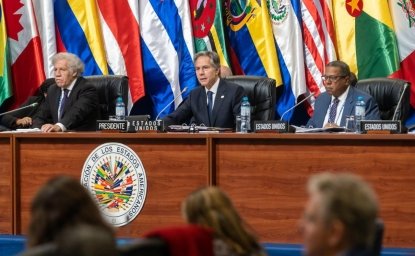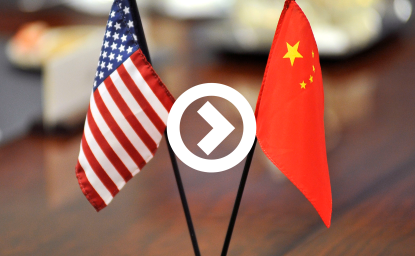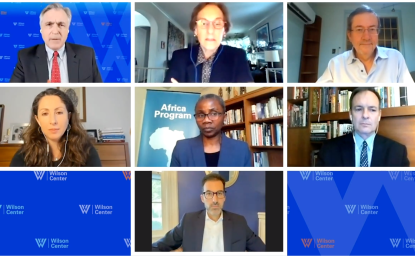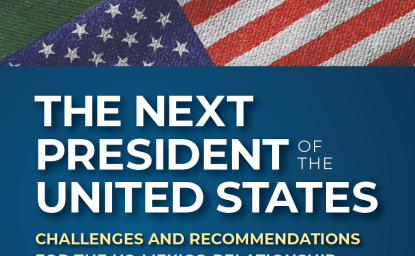Written by Cynthia Arnson:
Latin American countries expect:
- The United States to continue to uphold its economic engagement with the Hemisphere.
- The President-elect Trump to reaffirm the value of respectful, collaborative relationships to address shared problems.
- To consult with multiple stakeholders in the U.S. private sector, Cuban-American community, and other opinion leaders about the likely effects of rescinding U.S. executive orders on Cuba.
Q: What is the greatest challenge facing the United States’ relationship with Latin America?
A: President-elect Donald Trump’s campaign rhetoric had a negative resonance throughout Latin America. The harsh anti-immigrant positions, characterizations of Mexicans, and broadsides against NAFTA were interpreted as codes for the region as a whole, even though Latin America for the most part did not figure in the campaign. Many countries and sub-regions in the Hemisphere—Chile, Peru, Colombia, Panama, Central America and the Caribbean—have trade preferences or free trade agreements with the United States, laboriously negotiated by Republican as well as Democratic administrations. The threat to erect trade barriers and even abrogate existing accords dismayed those who opened their economies in large measure in response to prescriptions emanating from Washington. Unilateral policies implemented without consultation will alienate centrist, pragmatic governments who are strongly pro-U.S.; governments in South America especially have multiple options for global insertion, mainly China. Alienating the open, liberal, democratic countries of the region will serve to accelerate their integration with Asia, to the detriment of the U.S. economy and U.S. interests more broadly.
Q: What should the new president do?
A: The new president needs to reaffirm the value of respectful, collaborative relationships to address shared problems. For example, to successfully combat narco-trafficking, money laundering, and other forms of organized crime, the United States has to address other issues of importance to Latin American governments, such as how to create opportunities for young people in the legal economy through better education and job training. Mano dura—the Iron Fist—was tried and failed to improve security throughout the region; meanwhile, insecurity continues to serve as a key driver of migration. Complex problems require multi-faceted, cooperative solutions derived from consultation. This is as true for efforts to overcome Venezuela’s deep economic and governance crisis, a flashpoint with broad ramifications for regional stability, as it is for seizing opportunities for job creation through partnership in technological and scientific innovation. Cut-backs in foreign assistance could undermine bipartisan policies in Colombia and Central America forged out of a shared sense of national interest. The new president should seek opportunities early in his term to meet with or convene Latin American leaders, to seek their views about how to expand economic opportunity throughout the Hemisphere.
Q: What about the future of the relationship with Cuba?
A: The normalization of relations between the United States and Cuba had a deep symbolic impact on U.S. relations with Latin America: it was taken as a sign that the United States was finally prepared to end the Cold War and change a policy that, rather than isolating Cuba, had isolated the United States. The Republican victory in Florida and (according to exit polls) the president-elect’s slight majority among Cuban-American voters will tempt the new administration to rescind the executive orders relaxing restrictions on remittances, direct flights, and people-to-people contacts. Before any reversal of Obama administration initiatives, the new president should consult with multiple stakeholders in the U.S. private sector, Cuban-American community, and other opinion leaders to consider the likely effects of such action on achieving the stated objectives of greater openness, pluralism, and independence of Cuban civil society.
Guests


Director of Policy and Strategic Initiatives, Seattle International Foundation

Latin America Program
The Wilson Center’s prestigious Latin America Program provides non-partisan expertise to a broad community of decision makers in the United States and Latin America on critical policy issues facing the Hemisphere. The Program provides insightful and actionable research for policymakers, private sector leaders, journalists, and public intellectuals in the United States and Latin America. To bridge the gap between scholarship and policy action, it fosters new inquiry, sponsors high-level public and private meetings among multiple stakeholders, and explores policy options to improve outcomes for citizens throughout the Americas. Drawing on the Wilson Center’s strength as the nation’s key non-partisan policy forum, the Program serves as a trusted source of analysis and a vital point of contact between the worlds of scholarship and action. Read more

Explore More
Browse Insights & Analysis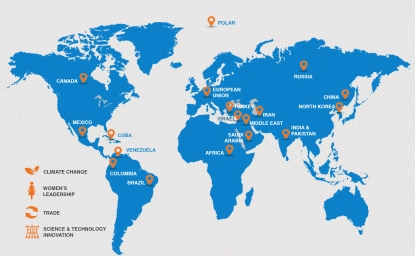
What Does the World Expect of President-elect Trump?

